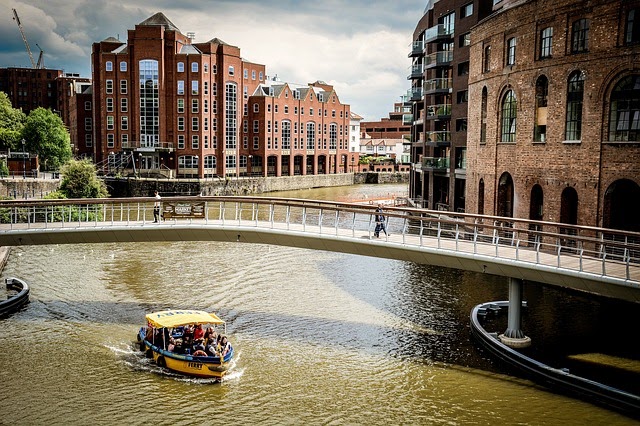Bristol has long been leading the way as one of the UK’s top smart cities by using data and technology to improve the quality of its public services, including transport and connectivity.
It was back in 2017 that Bristol was named as the UK’s leading Smart City in the UK Smart Cities Index but the city has not been resting on its laurels for the last 3 years. In September 2019, it launched its smart city strategy at the Bristol | Sweden Future Cities Summit. This outlined a five-year strategy for how the city will use innovation to solve challenges and continue to transform.
The strategy will be updated on a regular basis, and the overall aim is to use data and technology in projects that will provide more opportunities and find solutions to problems surrounding health, social care and congestion.
So how will Bristol go about improving its smart city status? It has set out six areas where it will lay its digital foundations, and here we take a look at each of them.
1. Focus on City Challenges
The first step in Bristol’s six-step plan is to focus on challenges faced by the city such as public safety, the elderly and social care. These are challenges that need smart technologies combined with talent and focus in order to address successfully.
Bristol will use the City Innovation Team to come up with innovative solutions before converting the solutions into mainstream services.
It plans to focus on smart city projects that align with the challenges faced in the city, ensuring that they are challenge-led and deliver real benefits. Initiatives include establishing a Digital Connectivity Forum and expanding the electric vehicle charging network.
2. World-Class Connectivity
Bristol is aiming to be the most connected city in the UK with high-quality digital connectivity that is both secure and reliable. This will provide numerous benefits to businesses and communities throughout the city through better wireless networks and fast public Wi-Fi using next-generation technologies.
Current initiatives include completing the Social Housing Broadband pilot and developing Bristol Is Open (BIO). It will also continue to expand BNET, a communications network owned by the council.
In addition, it plans to add smart sensors to streetlights on 10% of the city’s streets to improve safety.
3. City-Wide Innovation Ecosystem
Bristol will take a city-wide approach to encourage greater innovation across communities and institutions. It aims to bring together creative talent to design solutions to challenges to improve the city. It also plans to take a more inclusive approach using education to provide skills for all ages and better access to employment opportunities.
Initiatives include developing the Bristol’s Open Data Platform, working on an innovation toolbox to help citizens get access to tools and knowledge, and supporting new incubation workspaces.
4. Responsible Innovation
Bristol wants to become more connected, but not at the expense of social benefits. It also wants to ensure that its smart solutions comply with data protection regulations.
Over the next five years, it plans to deliver a digital inclusion programme, help companies develop initiatives, and increase digital understanding and skills. It will also create ethics guidelines to promote inclusivity.
5. Innovation Management
Bristol plans to improve the way it designs and deploys initiatives in order to deliver on its priorities. It wants to take a more robust approach to supporting innovation and will determine specific innovation goals.
This will include working closely with other local authorities, developing a portfolio of smart projects with both short-term and long-term impact, and sharing knowledge with national partners.
6. Public Service Innovation
Lower budgets and increased demand mean that the council must look at different ways to manage the city, and this is especially important when it comes to healthcare and social care.
The council will aim to achieve more with less funding by using technologies like cloud infrastructure and constantly reviewing how it can better use technology to improve public services. It also aims to create a Bristol Digital Twin, a virtual city using analytics and visualisation tools to help support planning and management.
A City Looking to the Future
Bristol has long been leading the way in terms of using the latest technology to solve everyday problems and improve the lives of its residents. It understands the role that digital technology can play in developing a more sustainable city where the communities can benefit from better local infrastructure.
By setting out its five-year plan, Bristol is showing that it is taking its smart city status seriously. Based on this evidence, the UK’s leading smart city has a bright future ahead.
ALL ARTICLES
